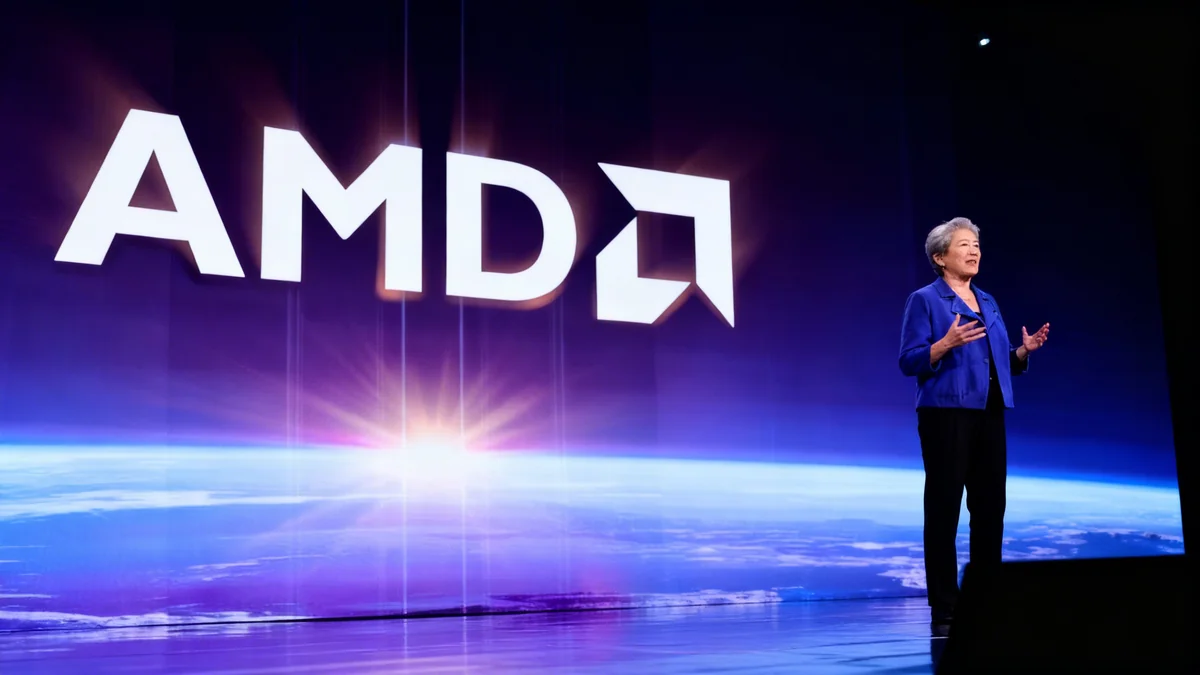Meta Platforms is dramatically increasing its investment in artificial intelligence, with founder Mark Zuckerberg committing to spend well over $100 billion next year alone. The move, aimed at achieving a dominant position in AI, has unsettled investors and triggered a significant drop in the company's market value.
Zuckerberg recently told analysts the company is preparing for the "most optimistic cases" in AI development. This aggressive spending strategy represents a high-stakes bet on securing leadership in what many see as the next technological frontier, even as it draws parallels to the company's costly and yet-to-be-realized metaverse ambitions.
Key Takeaways
- Meta's planned artificial intelligence spending for next year will significantly exceed $100 billion.
- The announcement led to a $160 billion decrease in the company's market capitalization as investors reacted to the scale of the investment.
- The primary goal is to achieve "superintelligence," a long-term vision that prioritizes technological dominance over immediate financial returns.
- Despite the massive expenditure, Meta's robust cash flow from its core advertising business mitigates the risk of financial instability.
A High-Stakes Bet on AI Supremacy
Meta's financial commitment to artificial intelligence is staggering. The planned expenditure for the upcoming year is more than double what financial analysts, citing data from LSEG, had projected for the company as recently as a year ago. This sudden and massive escalation in spending immediately impacted the company's stock.
Following the announcement, Meta's market value fell by $160 billion. The sharp decline reflects investor concern that massive spending does not guarantee success. Many are reminded of the company's ongoing investment in the metaverse, which has consumed billions of dollars without yet yielding significant returns.
"We are spending to meet the most optimistic cases," Mark Zuckerberg stated to analysts, signaling a strategy focused on achieving a breakthrough rather than conservative, incremental growth.
This approach contrasts with competitors like Google, which also invests heavily in data centers but can offset costs by renting unused computing capacity through its established cloud business. Meta lacks a comparable division, meaning its AI infrastructure costs are more directly tied to its own strategic goals.
The Personal and Financial Calculus
For Mark Zuckerberg, the pursuit of AI leadership appears to be more than a corporate strategy; it is a quest for a historic achievement. The goal of being the first to develop artificial general intelligence, or "superintelligence," carries a legacy-defining weight that transcends quarterly earnings reports.
Understanding Superintelligence
Artificial superintelligence (ASI) is a hypothetical form of AI that would possess intelligence far surpassing that of the brightest human minds. Achieving this would represent a monumental technological leap with profound implications for science, society, and the global economy. It is considered the ultimate prize in the field of artificial intelligence.
While the goal is ambitious, the financial risk to Meta is considered manageable. The company's core operations, particularly advertising on Facebook and Instagram, generate enormous amounts of cash. This spending spree is being funded primarily through operating cash flow, not by taking on significant new debt that would appear on its main balance sheet.
Furthermore, Meta utilizes financial structures like joint ventures, such as one with private credit firm Blue Owl, to finance data center expansion. This allows the company to leverage investment without directly adding liabilities to its corporate balance sheet.
Financial Resilience
According to analysis from Visible Alpha, even if Meta were to spend $500 billion on its superintelligence project over the next five years, the company would still be projected to have approximately $400 billion in cumulative free cash flow remaining. This highlights the immense financial power of its existing business.
Immediate Benefits and Long-Term Risks
Even if Meta does not win the race to superintelligence, the massive investment in AI infrastructure is not expected to be a total loss. The technology is already enhancing its primary revenue source: digital advertising.
AI-driven tools are improving ad targeting, performance, and user engagement across its platforms. In its most recent financial quarter, Meta reported showing users 14% more advertisements than in the same period a year earlier. Simultaneously, the average price charged for each ad increased by 10%, demonstrating how AI is already boosting efficiency and profitability.
This suggests that the capital expenditure has a dual purpose. While the headline goal is a revolutionary breakthrough, the underlying technology provides tangible, short-term benefits to the core business that helps fund the long-term vision.
Investor Perspective and Market Reality
Despite the recent stock drop, Meta's valuation remains relatively stable when viewed over a longer period. The company's shares trade at approximately 25 times forward earnings, a multiple that is consistent with its average over the past decade. This indicates that investors may not have been fully pricing in the possibility of Meta achieving AI supremacy in the first place.
The worst-case scenario for the company, should its grand AI ambitions fall short, is likely a significant decline in its share price rather than a threat to its existence. For a founder like Zuckerberg, who is both wealthy and firmly in control of the company, the potential glory of a historic breakthrough appears to outweigh the financial risk of a market downturn.
This aggressive, all-in strategy, dubbed the "AI YOLO trade" by some observers, is becoming a hallmark of the current tech landscape. For the leaders of Big Tech, the potential to define the future is a prize worth an extraordinary gamble.





